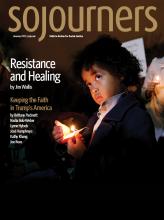In Kolkata, India’s second largest city, mass poverty affects millions. More than a third of the region’s 18 million people live in slums and 70,000 are homeless. Street and slum dwellers in Kolkata are mostly refugees or migrants from rural areas, driven into the city in search of livelihood. Whole families live in fragile shanties, bus shelters, and railway platforms, earning a meager living as rag pickers, petty hawkers, and daily wageworkers. Trapped in a vicious poverty cycle, they struggle daily for survival.
But it is also the site of broad-scale social programs rooted in Pentecostal faith.
“First feed our bellies ... then tell us about a God in heaven who loves us!” Decades ago, a hungry beggar flung these words at Mark Buntain, a young missionary-evangelist from North America who, with his wife, Huldah, had come to share the good news of Jesus with the people of Kolkata. The Buntains were convicted by these words, and the Assembly of God Church they founded 60 years ago launched a social outreach program that has served the poor of Kolkata ever since.
The Kolkata Assembly of God Church’s theory of change is deeply rooted in the gospel of Christ, with our ultimate goal being fullness of life for all, especially for the poor and marginalized in society. Though our initial response to the poverty trap was a spontaneous attempt to meet immediate needs at the grassroots level, with time we also developed a more studied response geared toward sustainable empowerment.
Read the Full Article

